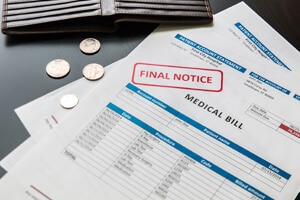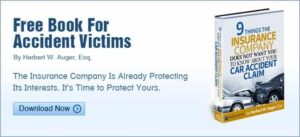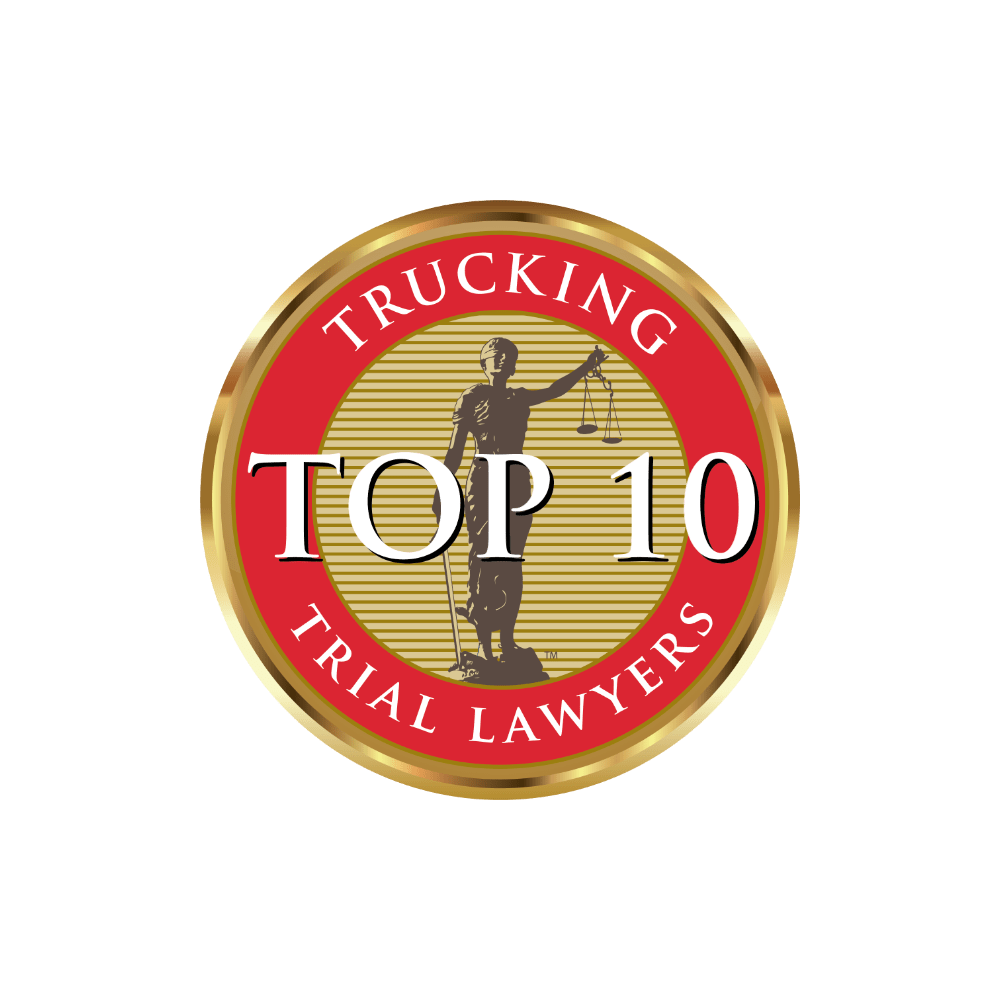A car accident or other situation where you’ve been injured can leave you dealing with a lot of problems. You may be in physical pain from your injuries, and sometimes that can lead to mental anguish, depression, or other mental health issues.

At the same time, you may be unable to work, but the medical bills from treating your injuries just keep coming. You may also have lost your vehicle or other property damaged in the incident. This kind of situation can be frustrating and draining, and if your injuries were caused by the negligence of another person or entity, you may be wondering what kind of damages you can seek. The best way to find out more about your particular case is to speak with an experienced North Carolina Car Accident attorney, but right now we’ll look at some general things you might want to know about personal injury cases.
Pain And Suffering And Medical Bills Are Separate Damages, But You Can And Should Seek Compensation For Both
There are several different categories of damages you can ask for when making a personal injury claim. “Pain and suffering” and “medical bills” are two separate categories, but most people have damages in both areas. So no, pain and suffering should not include your medical bills – you should be seeking a separate amount for those. Your attorney can help you make sure you’re asking for enough compensation in each category.
Here are the most common kinds of damages people seek in personal injury cases:
- Medical expenses. This should include hospitalization, doctor visits, laboratory or imaging tests, and any follow-up care – more doctor visits, prescription medication, outpatient physical therapy, inpatient therapy at a rehab center, occupational therapy, counseling or mental health care, etc. You should also include the receipts for any mobility aids you need, like crutches, canes, or a wheelchair, as well as modifications you need to make to your home, like adding a wheelchair ramp or making your shower accessible. Additionally, if you expect to need continued care, your lawyer will want to estimate your future medical costs and seek compensation for those as well.
- Lost income. If you spent time out of work due to your injuries, you deserve to be compensated for the income you lost. This is true even if you had sick days or other paid time off available – you may have gotten paid for those days, but you used up paid time off you could have saved for another time, so in that way, you still lost money.
- Lost earning potential. If your injuries led to a permanent or chronic problem that prevents you from going back to work at all, you should seek damages for the loss of ability to earn income at your previous rate.
- Property damage. If your car or other property suffered damage in the accident, you can seek compensation for the repair or replacement costs.
- Pain and suffering. This includes physical pain, discomfort, and inconvenience from your injuries. It can also include the emotional and mental health effects of an accident, such as fear or anxiety, difficulty sleeping, depression, PTSD, or other issues caused by the trauma of your accident. This may also mean a loss of enjoyment if you’re no longer able to do things you enjoy or have a life you find pleasurable.
- Loss of consortium. If a loved one died in the accident, or if they were injured to the point of no longer being able to participate in your relationship or family life, you may be able to seek damages for loss of consortium.
- Punitive damages. These have less to do with your expenses or suffering than the defendant’s actions. They are not awarded frequently, but sometimes they will be given out in order to punish the defendant further. This generally happens if the responsible party’s actions were particularly heinous if they knew their actions were dangerous but proceeded anyway, if they profited from their behavior, and if these actions met certain other criteria considered by the court.
Economic And Non-Economic Damages
The first four damages on the list above are what we call “economic” damages. In other words, they are mostly damages where you get a bill for a specific amount of money – you owe the doctor X dollars, the hospital Y dollars, and your new car costs Z dollars. You don’t get a bill for your lost earning capacity, but it can be estimated based on your previous income and the amount of time you would likely have worked until retirement, so the numbers are fairly straightforward.
Do I Seek Compensation For The Full Amount Of My Medical Care?
In 2011, North Carolina passed a “Billed Vs. Paid” law for economic damages in personal injury cases. As a result, medical expenses are limited to what you were actually billed after your health insurance paid their share. So if your insurance paid for 75 percent of a $10,000 hospital bill, you can ask for $2,500 in compensation, which is what you were billed by the hospital. If you do not have health insurance or the company refused to cover some or all of your bills for any reason, you will be billed for the full amount and can ask for it in your claim.
What About Non-Economic Damages?
The other damages listed above are non-economic – you don’t get a bill for X dollars for your pain and suffering, but those damages are still very real. Your attorney will go over your medical records and help you calculate an appropriate amount of money to seek for your pain and suffering. Under North Carolina law, non-economic damages are capped at $500,000. However, that does not prevent you from collecting additional compensation for your economic damages. So you could collect the full $500,000 in pain and suffering (if your particular claim was worth that much), then receive another $100,000 for your medical bills and lost income.
What If The Other Party Doesn’t Have Any Money?
This is a common concern. If you were involved in a car accident, the other party should have a minimum of $30,000 in liability coverage and $25,000 in property damage liability under state law. This is paid by the at-fault party’s insurance company, regardless of whether the driver has any money or not. Of course, your bills may be much higher than $30,000, or you may have been hit by an uninsured motorist. If you’re in such a situation, talk to an experienced personal injury attorney right away. Your lawyer may be able to find other options for recovering damages, such as making a claim against a third party. Your own car insurance may also cover some of your bills if you have uninsured/underinsured motorist coverage. If your insurance company is giving you a hard time about something they should cover, your attorney may be able to help.
With workplace injuries, most employers have considerable insurance policies and assets. You also have the option to file a worker’s compensation claim, although it is not the best option in every case. Workplace injuries can be fraught with complications to consider, so we urge you to speak with an attorney before deciding how you want to proceed.
In other injury situations, there may also be multiple responsible parties you could file a claim against. If you call Auger & Auger Accident and Injury Lawyers for a free consultation, we will work to find a solution to help you recover damages for your injuries.
The At-Fault Party’s Insurance Company Says They Don’t Have To Pay Because I Was Partly Responsible For The Accident, Am I Out Of Luck?
Not necessarily. The concept of pure contributory negligence is used in North Carolina personal injury claims. Essentially, these statutes say that if the accident victim is even one percent responsible for an accident, then the party who is 99 percent responsible doesn’t have to pay them any damages. Naturally, many people are frustrated to hear this. However, it’s important to understand that the other driver’s opinion or the insurance adjuster’s opinion of who contributed to the crash is not necessarily reality. Many car accidents involve both drivers claiming the other was at fault. It’s also very common for insurers to use this as an excuse not to pay a claim, knowing that some people will just give up and pay the bills themselves.
Sometimes, it is true that both parties contributed to an accident. But this isn’t always something that can be proven in court. An experienced personal injury attorney can help you put together evidence that you did not contribute to the accident. Your lawyer can also speak with the insurance company, letting them know how unlikely it is that you will be found at fault in the event of a lawsuit. In some situations, the insurance company may change its mind and agree to discuss settling your claim. If not, your attorney will present this evidence in court.
Unfortunately, there are other potential pitfalls to consider with insurance companies. Contributory negligence is not the only ground they may have to deny your claim. Sometimes the insurer will say that this type of accident or claim isn’t covered – or it’s only covered in certain circumstances, and yours don’t qualify. We don’t recommend arguing with the insurance adjuster yourself or even talking to them. Often the insurer’s representative will take anything you say as an excuse not to pay your claim, and you might inadvertently make the situation worse. If you receive a letter saying your claim is denied, call a North Carolina personal injury lawyer right away. They can advise you on the situation, and open a dialogue with the insurance company on your behalf if needed.
There is one more thing to be wary of: An offer from the insurance company, particularly a quick one without argument. At first, this probably sounds like a good thing, but stop and think before you sign anything. Sometimes when you get a quick offer from the insurance company, it’s much too low to cover your actual damages. This is especially true when you consider that most people have no idea how much their total claim should be worth. Calculating pain and suffering can be complex. Even something simple like adding up your medical bills may be more complicated than you’d think. Some people don’t realize all the expenses they can claim, or consider how much their future medical costs might be. For this reason, we strongly recommend you consult with a legal expert before agreeing to any offer from the insurance company.
Auger & Auger wants to help you with your claim. Because we work on a contingency basis and your first consultation appointment is always free, there is no reason not to learn more about your legal options after your injury.
If you decide to appoint a personal injury attorney to represent you, they will dig deep through the facts of your case to find out the best strategies for your unique situation. We always keep clients informed of their rights and options, advising them as to their best choices but never pushing them to make a decision they don’t feel comfortable with. Ultimately, it’s up to you if you want to accept an insurance company’s offer or keep fighting for more compensation. Either way, we’ll be here to help and support you.
By negotiating with insurers, filing paperwork on behalf of victims, and locating any evidence we can find to back your case, we offer you and your family a strong chance of resuming as close to normal life as you can get after your injury.
Don’t be burdened by massive bills, and don’t accept that you have to pay for the consequences of an accident that was someone else’s responsibility. Call one of our personal injury attorneys now, and talk to someone who cares.
Schedule your free, no-obligation consultation now when you call 855-969-5671 or contact us online.


















